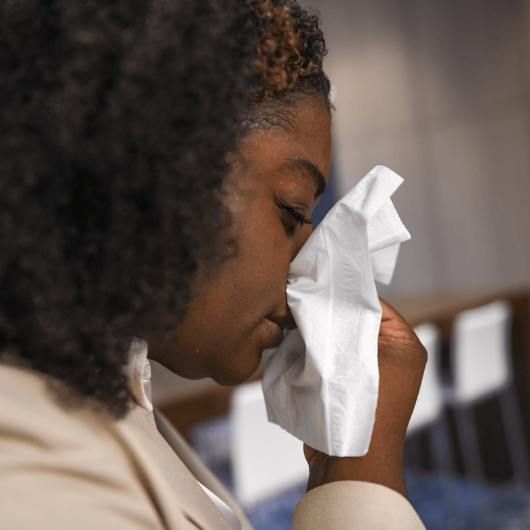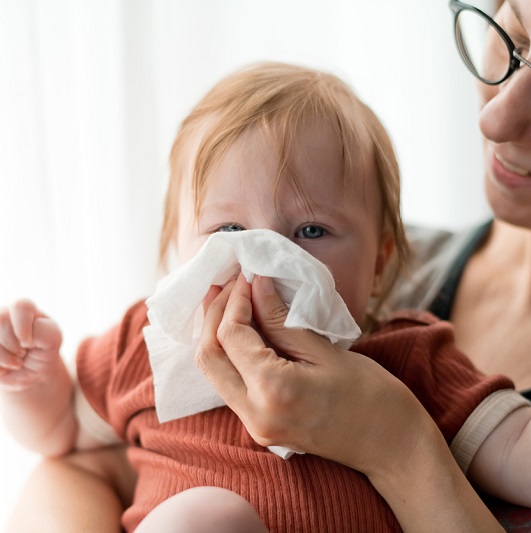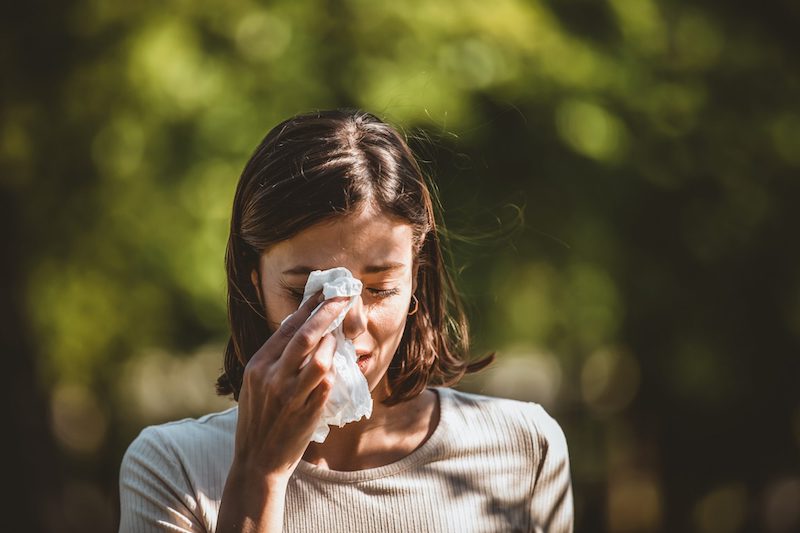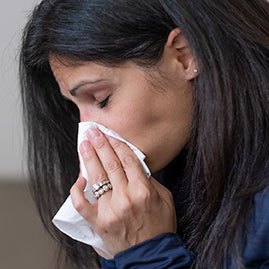Allergy Shot FAQ: Your Questions Answered
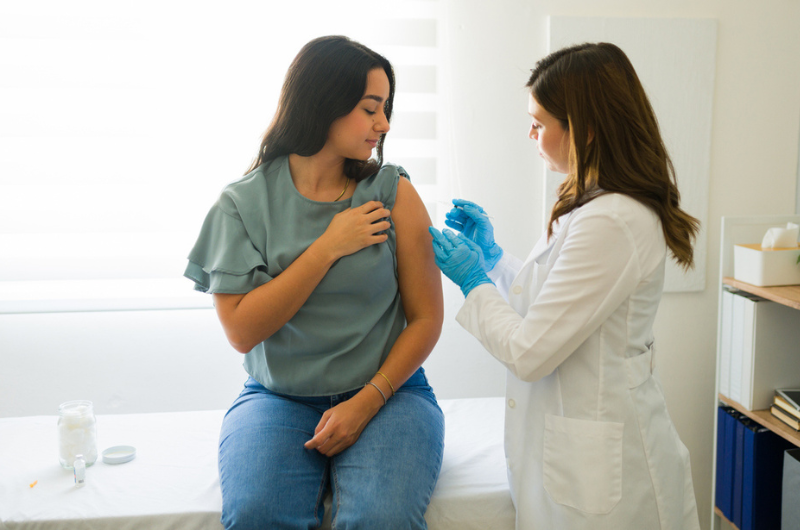
May 19, 2025
Every spring and fall, millions of people brace themselves for the itchy eyes, runny noses and relentless sneezing that come with seasonal allergies. For some, it’s a minor nuisance. For others, it’s a major disruption – interfering with sleep, school, work and time outdoors.
If you’ve tried every over-the-counter remedy and still find yourself avoiding the park, petting zoos or even your own backyard, you may be wondering: Could allergy shots finally bring relief?
We spoke with Mohammad A. Younus, M.D., an allergy and immunology specialist at Hackensack University Medical Center, who answered the most common questions people have about allergy shots – also known as allergen immunotherapy.
What Do Allergy Shots Actually Do?
Allergy shots work by slowly training your immune system to stop overreacting to allergens – things like pollen, pet dander or dust mites. Over time, your body develops tolerance to the triggers that once caused symptoms.This is different from taking a pill every day to mask the symptoms. Allergen immunotherapy changes how your immune system responds.
"Allergy meds really just treat the symptoms, not the underlying issue," says Dr. Younus.
Think of your immune system as a guard dog that barks at harmless things like pollen. Most allergy medicines just try to quiet the barking. Allergy shots are different – they train the dog to recognize pollen as friendly, so it stops barking in the first place. This makes them a special treatment for allergies and related problems like hay fever, asthma and eczema.
Do Allergy Shots Work?
While allergy shots don’t "cure" allergies in the traditional sense, they offer long-term relief that can reduce or even eliminate the need for daily allergy medications.
“After allergy shots, many patients experience symptom relief for a long time,” Dr. Younus says. “Some come back 15 years later with a recurrence of symptoms, while others are fine for 20, 30 years or even more.”
What’s the Treatment Schedule Like for Allergen Immunotherapy?
Allergy shots aren't a quick fix. You'll need to get shots regularly. "The dose gradually increases," says Dr. Younus. "You'll come in weekly for about eight or nine months, and then once a month after that. The whole process usually takes three to five years."
You’ll also need to stay at the doctor’s office for 30 minutes after each injection, just in case of a reaction.
There is a faster option called rush immunotherapy that condenses the build-up phase, but it’s not suitable for everyone. Your doctor can provide guidance on if it’s right for you.
Are Allergy Shots Safe?
Yes, but they do come with some precautions.
Because the shots contain small amounts of allergens, there’s a risk of an allergic reaction – especially early in treatment. That’s why patients are monitored after each injection. The most common side effects are redness, swelling or itching at the injection site. Serious reactions are rare.
“There are no steroids or long-term medications in these shots,” says Dr. Younus. “That’s one of the biggest misconceptions. Patients often worry they’ll be exposed to something harmful, but that’s not the case.”
Are Allergy Shots Right for Me?
Allergy shots can be life-changing, but they’re not for everyone.
Who Is a Good Candidate?
According to Dr. Younus, ideal candidates include:
- Adults of any age in good health
- Children age 5 and older with significant symptoms
- Patients with allergic asthma or eczema
- People with confirmed allergies (via skin testing or bloodwork)
- Those with moderate to severe symptoms that don’t improve with medication
“We see kids as young as five,” he says. “And some studies suggest that starting earlier may reduce allergy development later in life.”
Who Should Not Get Allergy Shots?
Patients who aren’t good candidates include those with uncontrolled asthma, recent severe allergic reactions, or certain medical conditions that increase risk.
Can Allergy Shots Treat Food Allergies?
No. Allergy shots are most effective for environmental allergies. This includes pollen, dust mites, mold and pet dander.
What Should I Know Before Starting Allergy Shots?
Aside from the time commitment, there are a few other key things Dr. Younus wants patients to understand.
First, missing doses can set you back. For example, if you miss three weeks of your shot, your doctor has to move back to a lower dose. That means it may take longer to reach the maintenance phase.
Also, you’ll still need to manage symptoms in the beginning. The effects build over time — allergy shots don’t provide instant relief.
Are Allergy Shots Worth It?
According to Dr. Younus,yes.
“Patients often say, ‘I’m able to enjoy my life. I can sleep better. I’m not taking medications all the time,’” he says. “Especially among children, the improvements are huge: fewer missed school days, better focus and the ability to play outside without constant discomfort.”
Are Allergy Shots Covered By Insurance?
Yes, in most cases. Allergy shots are usually covered by insurance plans, making them an accessible option for patients who might be spending hundreds of dollars on antihistamines, nasal sprays and eye drops every year.
Final Takeaways: What to Know About Allergy Shots
Allergy shots – also called allergen immunotherapy – are a long-term solution that can help reduce or even eliminate your allergy symptoms over time. But they do require commitment, patience and regular follow-ups.
Here’s a quick recap of what to keep in mind:
- Allergy shots work by gradually desensitizing your immune system. You’ll start with weekly or biweekly injections, then taper to monthly maintenance doses.
- It can take 6 to 12 months to notice a difference. Stick with the schedule your allergist recommends. Consistency is key.
- They’re most effective for environmental allergies. This includes pollen, dust mites, mold and pet dander. Food allergies are not treated with allergy shots.
- Side effects are usually mild. Redness or swelling at the injection site is common. Serious reactions are rare but possible, which is why you’ll be monitored after each shot.
- Allergy shots can provide lasting relief. Many people have fewer symptoms and need less medication, even after stopping the shots.
As Dr. Younus puts it: “You’re not just managing symptoms anymore. You’re changing your immune system – and that can change your whole life.”
Still wondering if allergy shots are right for you? Schedule an appointment with an allergist near you.
Next Steps & Resources
- Meet our experts: Mohammad A. Younus, M.D.
- To make an appointment with a doctor near you, call 800-822-8905 or visit our website.
The material provided through HealthU is intended to be used as general information only and should not replace the advice of your physician. Always consult your physician for individual care.

